UNODC-led CT Travel Training enhances Pakistan’s counter-terrorism capabilities through collaboration and advanced data analysis
 9th March 2024, Islamabad - In yet another initiative aimed at enhancing Pakistan's capabilities against the challenge of terrorism, the United Nations Office on Drugs and Crime (UNODC) Pakistan, in collaboration with the National Counter Terrorism Authority (NACTA) and the Federal Investigation Agency (FIA), organized the CT Travel Interactive Training on Advance Passenger Information (API) and Passenger Name Records (PNR) from March 4th to 8th, 2024, in Islamabad. This pivotal training, generously supported by the Global Affairs Canada, underscores a shared commitment to fortifying global security through advanced data analysis and cooperation.
9th March 2024, Islamabad - In yet another initiative aimed at enhancing Pakistan's capabilities against the challenge of terrorism, the United Nations Office on Drugs and Crime (UNODC) Pakistan, in collaboration with the National Counter Terrorism Authority (NACTA) and the Federal Investigation Agency (FIA), organized the CT Travel Interactive Training on Advance Passenger Information (API) and Passenger Name Records (PNR) from March 4th to 8th, 2024, in Islamabad. This pivotal training, generously supported by the Global Affairs Canada, underscores a shared commitment to fortifying global security through advanced data analysis and cooperation.
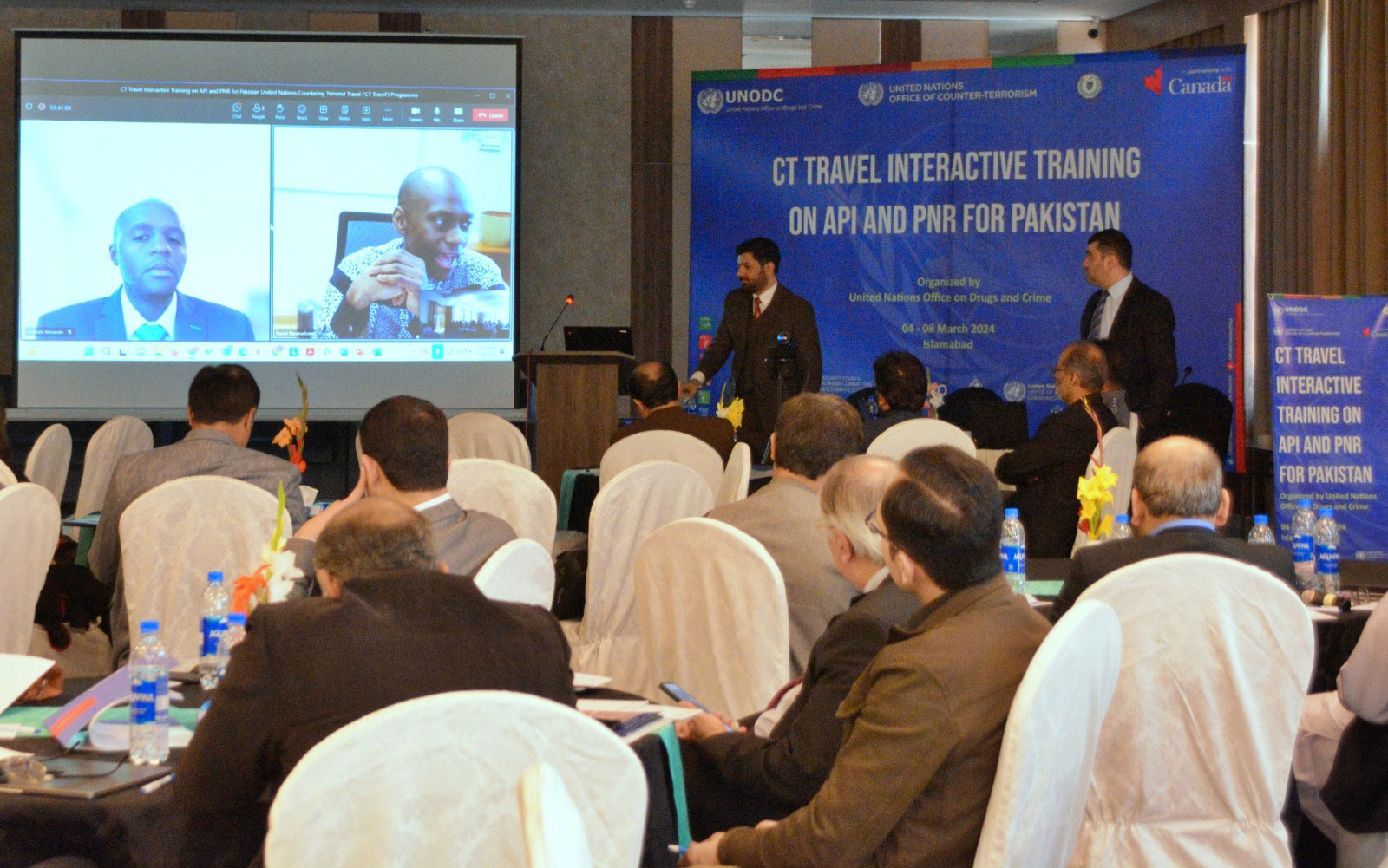 The event brought together over 50 officials from various government departments, including the Ministry of Interior, Ministry of Law & Justice, Ministry of Human Rights, FIA, Pakistan Customs, Civil Aviation Authority, Intelligence Bureau, Airport Security Force and airline representatives, fostering cross-departmental collaboration and knowledge exchange in the area of aviation security.
The event brought together over 50 officials from various government departments, including the Ministry of Interior, Ministry of Law & Justice, Ministry of Human Rights, FIA, Pakistan Customs, Civil Aviation Authority, Intelligence Bureau, Airport Security Force and airline representatives, fostering cross-departmental collaboration and knowledge exchange in the area of aviation security.
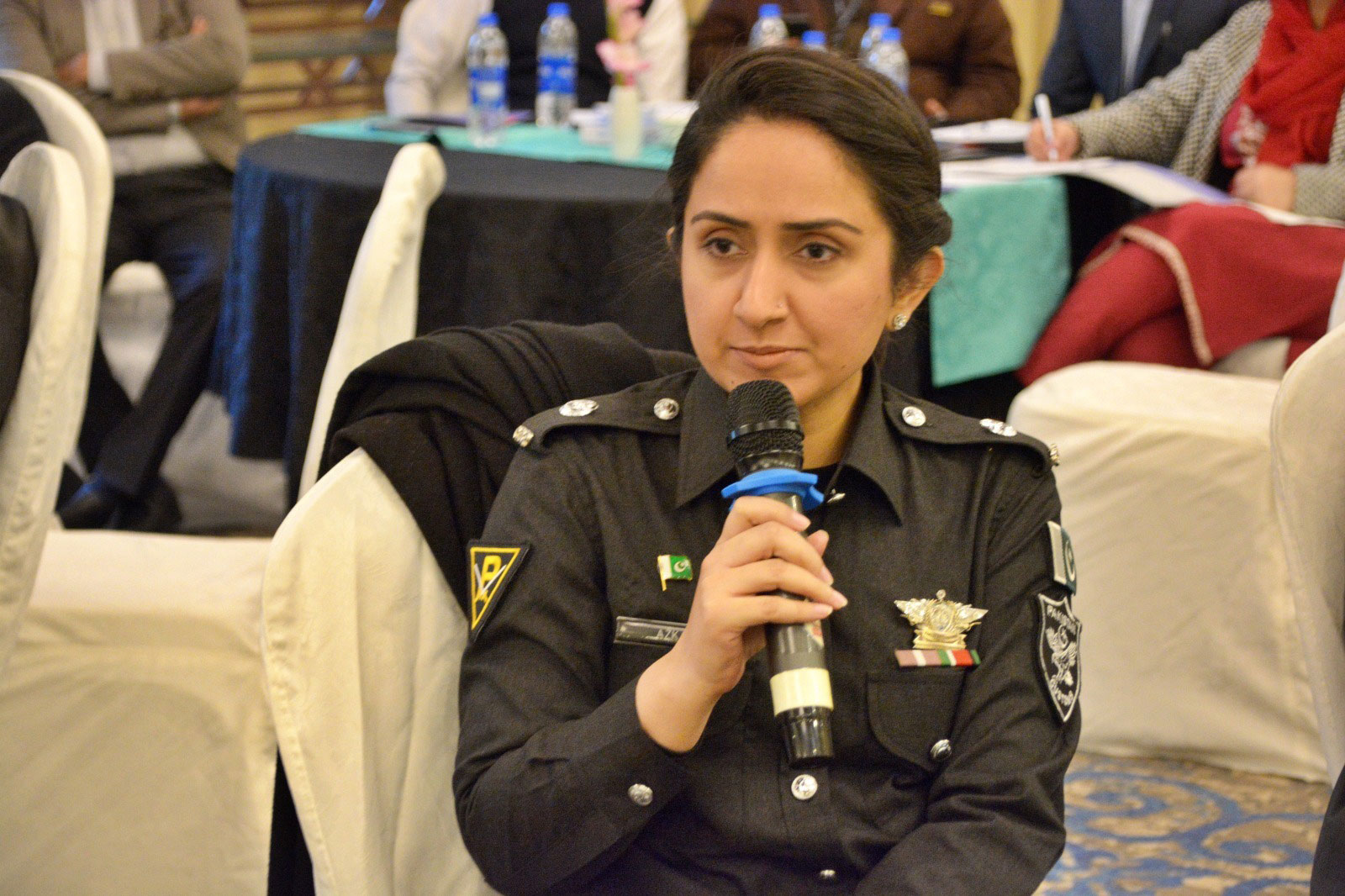 The primary objective of the training was to cultivate a comprehensive understanding of Pakistan’s expectations regarding the implementation of UN CT Travel Programme encompassing legal, operational and technical capacities, alongside national counter-terrorism structure and priorities. The UN CT Travel Programme is a whole of UN initiative which draws upon expertise from entities such as the United Nations Office of Counter-Terrorism (UNOCT), the United Nations Counter-Terrorism Executive Directorate (CTED), UNODC, the International Civil Aviation Organization (ICAO), the United Nations Office of Information and Communication Technology (UNOICT), the International Criminal Police Organization (INTERPOL), and the International Organization for Migration (IOM).
The primary objective of the training was to cultivate a comprehensive understanding of Pakistan’s expectations regarding the implementation of UN CT Travel Programme encompassing legal, operational and technical capacities, alongside national counter-terrorism structure and priorities. The UN CT Travel Programme is a whole of UN initiative which draws upon expertise from entities such as the United Nations Office of Counter-Terrorism (UNOCT), the United Nations Counter-Terrorism Executive Directorate (CTED), UNODC, the International Civil Aviation Organization (ICAO), the United Nations Office of Information and Communication Technology (UNOICT), the International Criminal Police Organization (INTERPOL), and the International Organization for Migration (IOM).
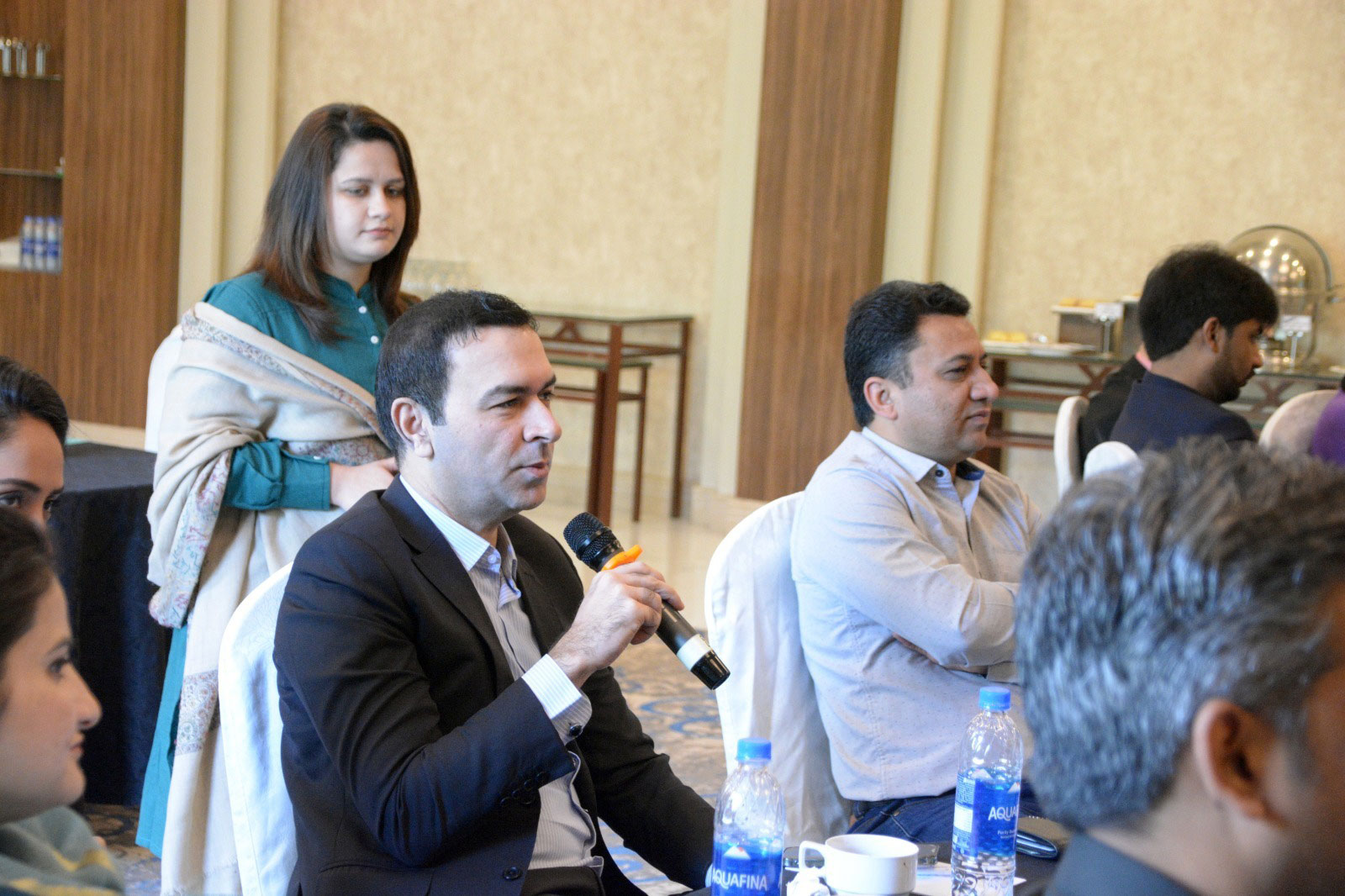 The sessions conducted over the course of five days spanned a broad spectrum of topics critical for the effective implementation of counter-terrorist travel measures. Commencing with an in-depth exploration of the legal frameworks underpinning API and PNR data collection and utilization, led by UNODC/TPB, the training laid the groundwork for understanding international legal obligations and best practices in passenger data processing, emphasizing the delicate balance between security measures and human rights considerations.
The sessions conducted over the course of five days spanned a broad spectrum of topics critical for the effective implementation of counter-terrorist travel measures. Commencing with an in-depth exploration of the legal frameworks underpinning API and PNR data collection and utilization, led by UNODC/TPB, the training laid the groundwork for understanding international legal obligations and best practices in passenger data processing, emphasizing the delicate balance between security measures and human rights considerations.
A significant highlight was the session on the operational aspects of Passenger Information Units (PIUs), facilitated by experts from UNODC AIRCOP and representatives from German and Turkish PIUs. These sessions provided valuable insights into establishing and managing PIUs effectively, offering examples of successful operations while discussing common challenges faced by countries in the initial stages of implementation. The exchange of national experiences provided a unique opportunity for participants to learn from both successes and obstacles encountered by other nations.
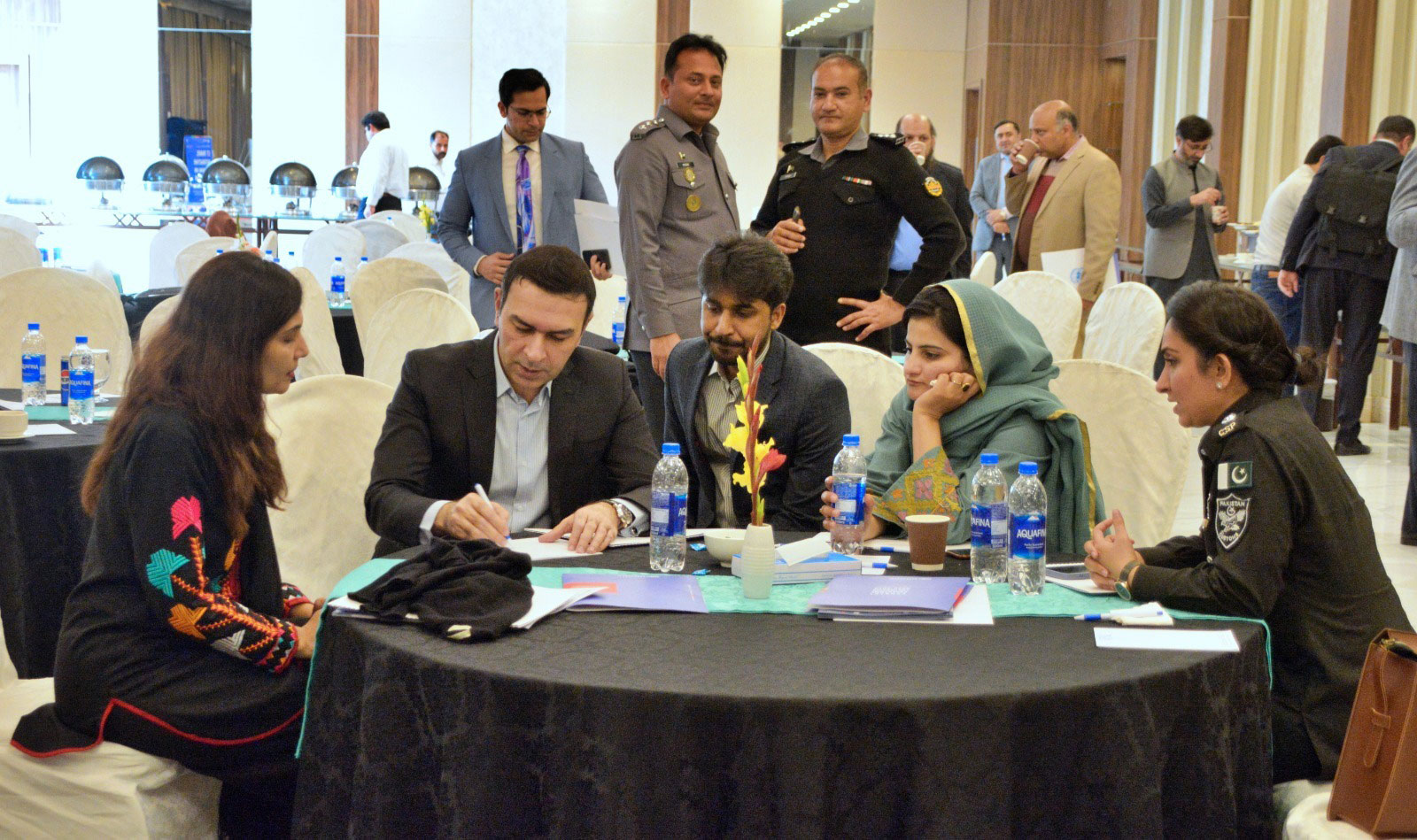 The discussion on the GoTravel software and its implementation process, led by UNOICT, stood out as an essential component of the training. This session delineated the technical specifications and infrastructure requirements of the software, highlighting the critical role of strategic alignment between business processes and IT systems in combating terrorist travel. By explaining the technical aspects and focusing on the practical application of the software, participants were equipped with the requisite knowledge and tools needed to advance the deployment of GoTravel in Pakistan. These comprehensive sessions underscored the importance of integrating technological solutions with operational and legal frameworks to formulate a robust and effective counter-terrorism strategy.
The discussion on the GoTravel software and its implementation process, led by UNOICT, stood out as an essential component of the training. This session delineated the technical specifications and infrastructure requirements of the software, highlighting the critical role of strategic alignment between business processes and IT systems in combating terrorist travel. By explaining the technical aspects and focusing on the practical application of the software, participants were equipped with the requisite knowledge and tools needed to advance the deployment of GoTravel in Pakistan. These comprehensive sessions underscored the importance of integrating technological solutions with operational and legal frameworks to formulate a robust and effective counter-terrorism strategy.
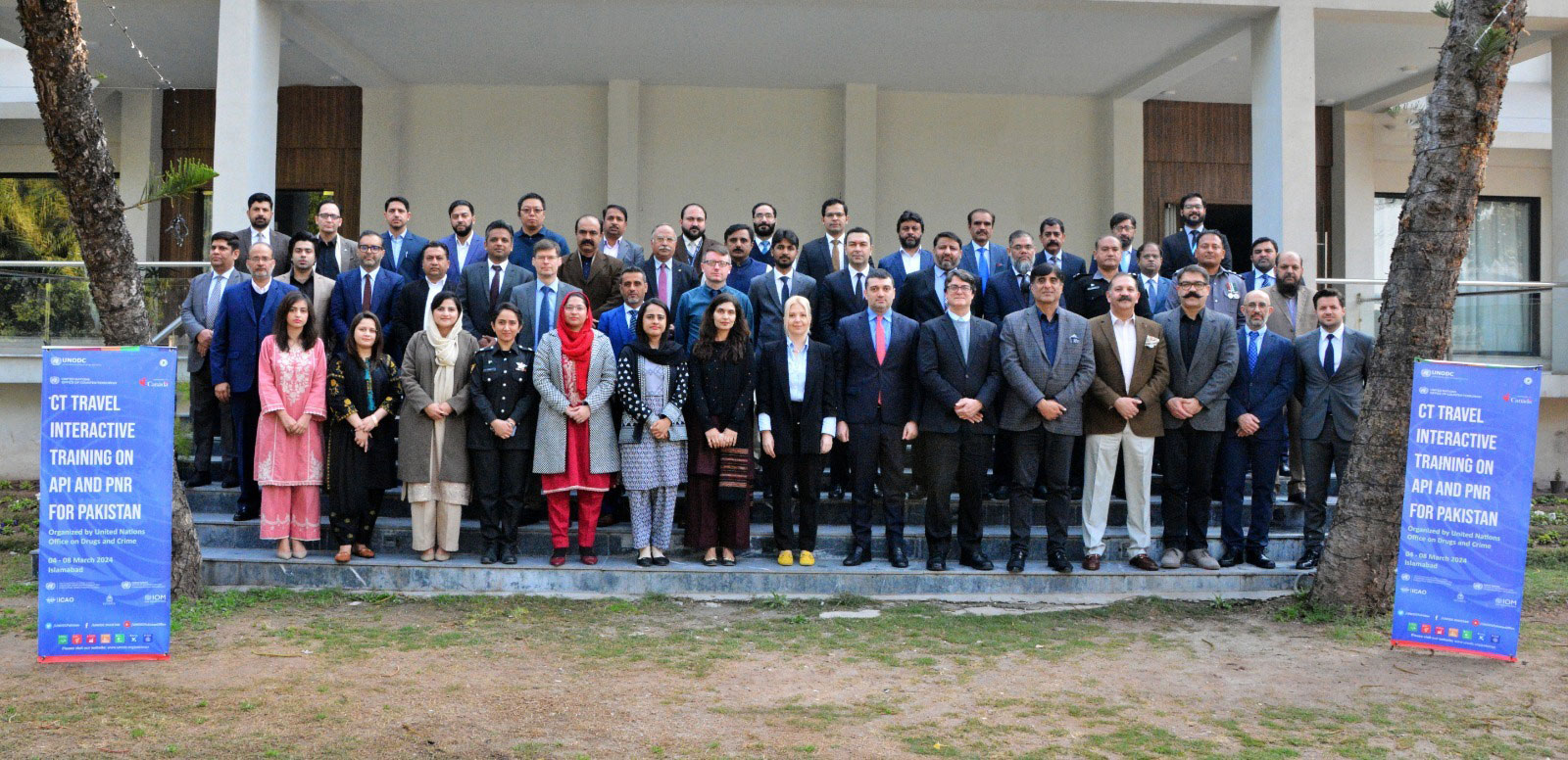 Each day culminated in closed group meetings for each pillar, including Legal, Operational, Carrier Management and Infrastructure to discuss the impending challenges in the implementation of UN CT Travel Programme.
Each day culminated in closed group meetings for each pillar, including Legal, Operational, Carrier Management and Infrastructure to discuss the impending challenges in the implementation of UN CT Travel Programme.
during the closing ceremony, Mr. Ahmed Ishaq Jahangir, Director-General of the Federal Investigation Agency (FIA), underscored the pivotal role of FIA as the lead agency in implementing the UN Counter-Terrorism Travel Programme in Pakistan. He commended the unwavering commitment and collaboration among all stakeholders, emphasizing the significance of the training in enhancing the nation's capabilities to counter terrorist travel effectively. Mr. Jahangir expressed his gratitude towards UNODC, international partners, and particularly the Government of Canada for their support, pledging continued dedication to the Programme's goals.
Subsequently, Mr. Jeremy Milsom, UNODC Country Representative, reflected on the week's accomplishments, highlighting the shared learning experience and the importance of international cooperation in combating terrorism. He commended participants for their engagement and eagerness to embrace new technologies and methodologies, such as the GoTravel software, crucial for the Programme's success. Mr. Milsom concluded with appreciation for the FIA's leadership and the collective efforts poised to propel this critical initiative forward.
Social Media:
https://www.facebook.com/unodc.pakistan/posts/724642363206127
https://www.linkedin.com/feed/update/urn:li:activity:7172938616992686082
https://twitter.com/UNODCPakistan/status/1767171966073516342